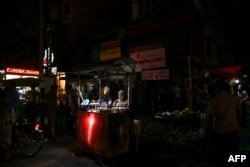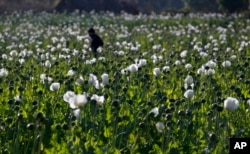Myanmar's economy is expected to see growth by the end of the current fiscal year, but that growth still lags pre-coup levels.
In a report released by the World Bank on Monday, the Southeast Asian country is forecasted for an economic growth of 3% by the end of September.
Titled "Myanmar's Economic Monitor: Navigating Uncertainty," the report states that the risks outweigh the positives when it comes to Myanmar's economic recovery, which include "a worsening of conflict in the lead-up to planned election."
Myanmar has been in crisis since the military staged a coup two years ago, removing the democratically elected government and putting its army leaders in charge. The takeover has been hugely opposed by the Myanmar population, with the country seeing widespread protests. But the juntas have strictly cracked down on opposition, including politicians, activists, and media that has fueled an armed resistance movement called the People's Defence Force. The conflict in the country now resembles civil war.
A volatile economy
The World Bank report summarizes how Myanmar's economy has experienced volatility over the past six months as the conflict continues. This has caused the economy to become disrupted and consequently has had a devastating impact on lives and livelihoods. Construction costs, electricity shortages and the military's regulations have also impacted economic activity.
Businesses across the board in Myanmar have highlighted the volatile exchange rate as the main economic difficulty, while also citing foreign currency shortages and ongoing trade restrictions as major obstacles.
The coup has triggered sanctions from Western countries while foreign investors have been discouraged to do business in Myanmar because of the ongoing unrest. This has led to a weak domestic market for businesses to turn a profit.
And the continued instability coupled with the junta's style of governing have also contributed to a pessimistic economic outlook.
Kim Alan Edwards, an economist at the World Bank and one of the authors of the report, said an unstable policymaking structure hampers business confidence.
"There are no easy fixes to Myanmar's situation and part of the problem is the increased trend towards more discretionary policymaking, less clarity about rules and regulations, less transparency, a sense that the rules and regulations can change at any time and have the potential to favor some businesses and entities and not others," Edwards said during an online briefing. "And this sense is very damaging to business confidence, it makes it a lot harder to plan for the future and reduces the incentives to invest. Until we see some change, the potential growth in the economy is likely to remain very weak."
The report also finds the Myanmar kyat lost a quarter of its value to the U.S. dollar for a time in the second half of 2022 due to elevated commodity prices and logistic constraints. The depreciation has led inflation to rise to over 20% up until last July.
Job losses, increased hunger
In the 2018-2019 fiscal year, Myanmar saw growth forecasts of over 6%, but the pandemic coupled by the military takeover severely affected the economy, which contracted by 18% in 2021. Last year's growth also saw a 3% forecast as Myanmar struggles to accelerate its economy to pre-pandemic levels.
Surveys conducted in Myanmar also indicate that household welfare difficulties have increased because of job losses. This has ultimately led to less income for families that have pushed the country's low food consumption score to nearly double, from 9.4% to 17.2%, while 4% of households face moderate starvation.
Economic uncertainty has also driven up the illegal drug trade with Myanmar's once-booming opium poppy fields on the rise amid the economic decline sparked by the pandemic and coup, according to a new report by the U.N.'s Office on Drugs and Crime.
Myanmar is one of the world's largest suppliers of methamphetamine and the second-largest producer of opium after Afghanistan.
Elections and an uncertain future
The near future of Myanmar will revolve around the junta's promise of new elections.
Edwards said the World Bank's forecast accounts for the potential risk of increased violence this year, which would further damage Myanmar's economic prospects.
"We have assumed in putting together the forecast for slow growth in 2023, that the conflict remains at elevated levels and that's a reasonable baseline assumption given what we've seen, and the risks associated with the elections. I think there is a risk that the conflict and violence become significantly worse and that would add to the constraints the economy faces," he added.
Nearly 3,000 people have been killed by the junta since the military coup on Feb. 1, 2021, according to the Thailand-based monitoring website the Assistance Association for Political Prisoners.
The elections are not planned to be held until August, but the military has already imposed new regulations that make it more difficult for opposition parties to put up a challenge.
Announced via state-media last week, Myanmar's new electoral law will set minimum funding and membership levels for parties participating in the election and bans party participation or candidates that are deemed by the junta as unlawful. Any candidates linked to organizations declared by the military government to be terrorist groups will also be prohibited from running.
Western critics predict the elections will be a sham.
The National Unity Government, Myanmar's shadow government formed by ousted politicians and regional leaders in wake of the coup, has said it will not recognize the elections.
And ASEAN leaders such as Malaysian Foreign Minister Saifuddin Abdullah said last year that Malaysia will not support the regime's planned elections because some of the election rules were seen as biased.








